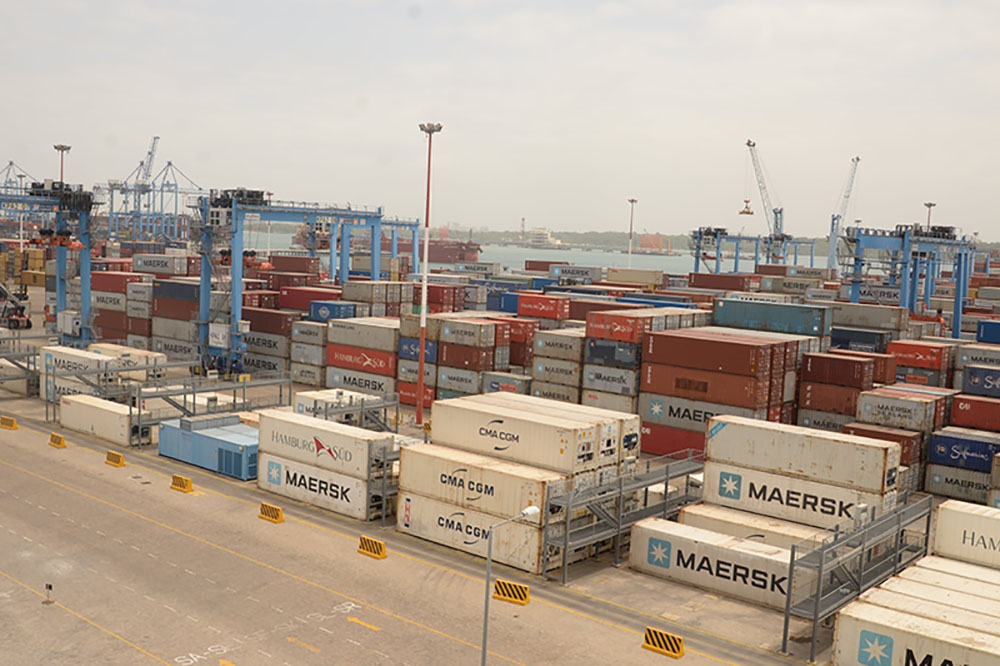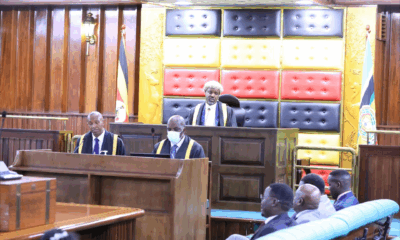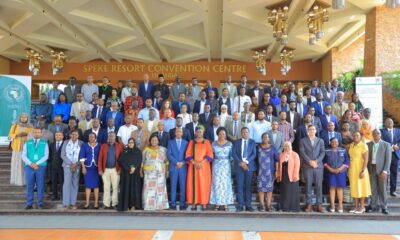Economy
New URA Policy on Groupage Cargo Hits Small Traders Hard With Delays And Higher Costs
A sweeping new policy by the Uganda Revenue Authority (URA) aimed at tightening control over groupage cargo clearance has sparked uproar among thousands of small traders, who say it has turned a once-efficient three-day process into a weeks-long ordeal, with severe financial consequences.
Effective June 1, 2025, the URA now requires every importer using groupage shipping — a system where multiple traders share a container to clear their goods individually using a personal Tax Identification Number (TIN) and a house bill of lading. This replaces the former practice where a single “container leader” or clearing agent processed all goods on behalf of others.
URA Commissioner General John Musinguzi, who announced the policy in April, said the reforms are intended to combat widespread tax fraud. “We have observed serious abuses by container leaders who overcharged small traders and under-declared taxes,” Musinguzi noted.
Abel Kagumire, Commissioner of Customs at URA, added: “This is about protecting traders from exploitation. Now every trader takes responsibility for their own cargo.”
But in Kampala’s busiest commercial buildings, including Nana Plaza, BMK House, and Papa Plaza, traders are feeling the pinch. Many report paralysed operations due to customs delays and skyrocketing costs.
“What used to take three days now takes three weeks — or more. And costs have tripled,” said Eddie Dollar, a clothing trader whose shelves have sat empty since early June. “I’ve lost customers. I’ve lost income.”
According to traders, containers that previously cost Shs150 million to clear now demand upwards of Shs350 million. Many blame the need for individual declarations, documentation, and added clearing agent fees. Though URA insists the tax rates themselves remain unchanged, traders argue the cost of compliance has soared.
Emmanuel Ssemugenyi, a tax policy expert, supports the intention behind the reforms but criticises their rollout. “Yes, the old system had loopholes, but this new method is hurting the smallest players. Shared clearing kept costs low. Now, each trader must fend for themselves; that’s devastating for struggling businesses.”
URA officials maintain that groupage shipping is still allowed — what has been banned is the use of one agent to clear all items in a container upon arrival. The shift is meant to eliminate ghost clearances, tax manipulation, and inflated fees that were reportedly costing Uganda up to Shs5 trillion ($1.3 billion) annually — nearly 10% of the country’s GDP.
But the new policy’s short-term impacts are rippling across the economy. Prices for common goods have more than doubled in some markets, with items once sold for Shs40,000 now retailing at over Shs100,000. Traders say the burden is being passed to consumers, who are already grappling with high living costs.
“This is not just a trader problem,” said Jemba Kanakulya Mulondo, board member of the Kampala City Traders’ Association (KACITA). “It’s a national issue. The economy depends on traders moving goods quickly and affordably. URA must commit to clearing cargo within 48 hours — anything longer is unacceptable.”
Mulondo called on government agencies to benchmark systems in neighbouring countries like Kenya, Tanzania, and Rwanda, where cargo consolidation reportedly runs more efficiently without crippling small businesses.
For now, many traders remain confused about the new process and continue to rely on clearing agents, who, seeing an opportunity, have hiked their service fees. The result is growing frustration, financial stress, and fears that some small businesses could collapse altogether.
While URA hopes the reforms will improve transparency and increase domestic revenue in the long term, the short-term disruption is clear: longer delays, higher prices, and thousands of small traders caught between policy and survival.
As Uganda’s importers adjust to this new normal, their message to URA is simple: reform is welcome, but not at the expense of livelihoods.
Comments



























